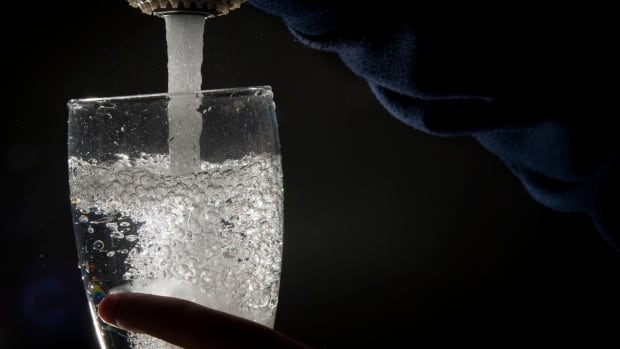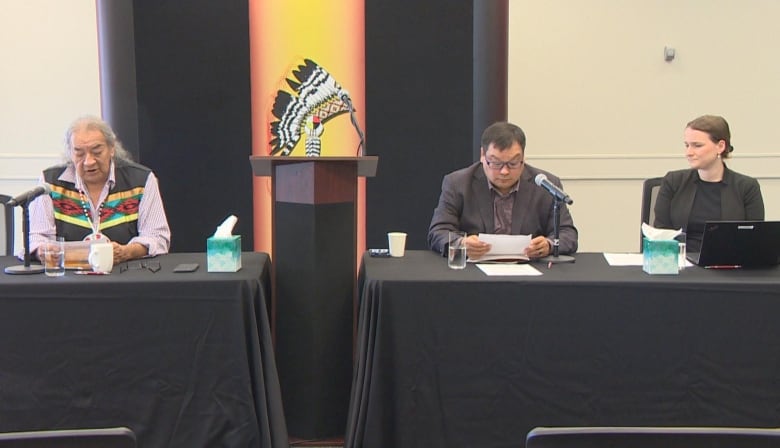
The federal government has no legal duty to ensure First Nations have clean drinking water, even if Liberal ministers publicly suggest otherwise, Justice Canada lawyers say.
That’s the defence the federal government is expected to mount in Ottawa this week in Federal Court, as it fights a national class-action lawsuit launched by a remote northern Manitoba First Nation in 2022.
Shamattawa First Nation, which has been under a boil water advisory since 2018, and its Chief Jordna Hill are pursuing the case for all First Nations members countrywide whose community was subject to a drinking water advisory in effect on or after June 20, 2020.
The plaintiffs argue First Nations have a basic human right to clean water that Canada has violated, describing the conditions facing their communities as “an urgent human rights crisis.”
In its statement of defence, Canada argues the government supports the delivery of potable water for First Nations as a discretionary political decision, calling it “a matter of good governance rather than legal duty.”
“Canada does not owe any legal obligations or duties to operate and maintain the plaintiffs’ water systems,” says the statement of defence.

Alana Robert, counsel for Shamattawa and Hill, told CBC Indigenous they aim to change that notion.
“What First Nations leaders I think have made quite clear throughout this litigation is the disappointment and frustration of having to fight yet again for such a basic human right,” said Robert, an associate with McCarthy Tétrault LLP.
Canada’s lawyers are seeking dismissal of Shamattawa’s motion for summary judgment on the question of Canada’s legal duties. They will have their opportunity to respond on Tuesday.
‘Right to safe water is not distinctly Indigenous’
The case picks up where previous class actions, settled for $8 billion out of court, left off.
Fifty-nine First Nations have opted into the current case, while individual First Nation members would be automatically included if they meet the requisite criteria.
Canada’s lawyers are expected to argue, among other things, that “the right to safe water is not distinctly Indigenous,” while “there is no positive right to government funding,” according to their written argument.
The plaintiffs point to numerous Liberal ministers’ public statements seemingly acknowledging federal responsibility for the water crisis facing some First Nations.
We’re really seeing the dark underbelly of Canada, and I would say the hypocrisy of the Liberals.– NDP MP Niki Ashton
Indigenous Services Minister Patty Hajdu said at a news conference on April 28, 2022, that “Canada accepts the role that the government has played in First Nations’ lack of access to clean drinking water.”
But Canada now argues the comment — and others like it — “was made in a particular context,” shouldn’t be taken out of context and doesn’t provide a legal opinion.
Lifting all long-term boil water advisories on reserves by 2021 was one of Prime Minister Justin Trudeau’s promises in 2015. There were 105 long-term drinking water advisories in November 2015. Thirty-three advisories were in place as of Sept. 28, according to government data.
Niki Ashton, the New Democrat MP whose riding includes Shamattawa, says Canada’s arguments are shocking and hypocritical.
“I think any Canadian would be shocked that, in a country as wealthy as Canada, a country that has been seen to be a leader on human rights on the world stage, we’re telling First Nations that they don’t have a right to clean water,” Ashton said in an interview.
“We’re really seeing the dark underbelly of Canada, and I would say the hypocrisy of the Liberals.”
Hajdu touted the government’s progress since 2015 when Ashton pressed for answers on the case during question period last week.
“We have lifted over 145 long-term boil water advisories and prevented well over 200. We are going to continue that hard work,” Hajdu said.
‘Pointing the finger at First Nations’
Ashton told CBC Indigenous it was “particularly heartbreaking” to hear how Shamattawa has been treated in the case.
Hill described the cross-examinations by government lawyers as “long and painful,” in a Sept. 15 letter to the MP.
“I was asked questions that sought to blame me and my band council for our long-term drinking water advisory,” Hill wrote.
“Rather than look in the mirror, Canada is pointing the finger at First Nations for the entirely predictable consequences of its own actions.”
Lawyer Michael Rosenberg, who opened the hearing Monday for the plaintiffs, said Canada is blaming the victims.
Canada’s lawyers cross-examined the plaintiffs in “forensic detail,” presenting them with stacks of technical documents and financial statements on short notice, Rosenberg told Justice Paul Favel.
“It didn’t seem like a fair way to conduct a case against a group of plaintiffs that are vulnerable and lived through a drinking water advisory,” Rosenberg said.
Canada then attached an 11-page appendix to its written argument, or factum, outlining a list of alleged examples of inconsistencies in the plaintiffs’ evidence.
“It’s unfortunate that Canada has chosen to defend this case by impugning First Nations leaders,” Rosenberg said.
Hill was not available to discuss the case. The chief had planned to travel to Ottawa but was unable to make the trip following the death of his son, court heard. The hearing began Monday with a moment of silence.
Matters about this particular motion conclude on Wednesday.